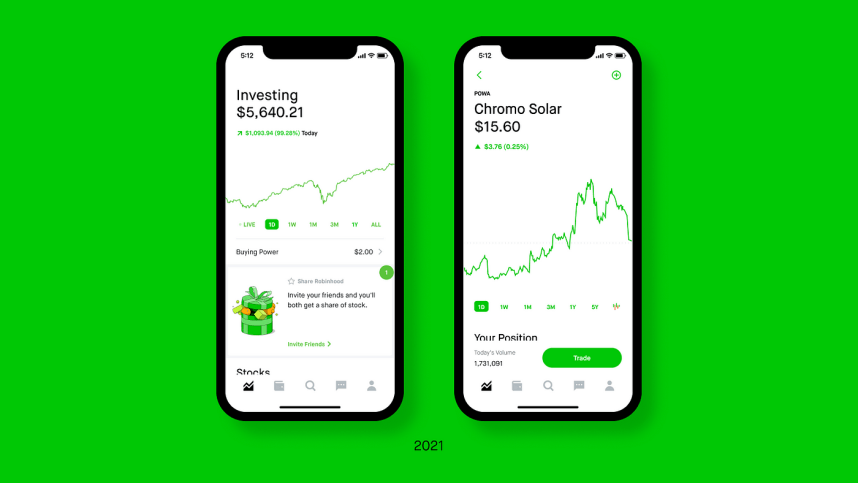Robinhood Prediction Markets Biz on Pace for $200 Million in Revenue
Posted on: September 24, 2025, 12:03h.
Last updated on: January 6, 2026, 09:06h.
- Analyst estimate is based on September volume of $2.6 billion
- Analyst says Robinhood customers account for up to 35% of Kalshi volume on any given day
Robinhood Markets’ (NASDAQ: HOOD) move into football prediction markets is already paying dividends for the company and its investors.

In a new report to clients, Piper Sandler analyst Patrick Moley said prediction markets on Robinhood — offered via partnership with Kalshi — have processed month-to-date volume of $2.6 billion, more than doubling the brokerage firm’s previous monthly high. Moley estimates that based on September’s run rate, prediction markets could boost Robinhood’s revenue by as much as $200 million annually.
Prediction markets present significant upside opportunity for Robinhood,” said the analyst who reiterated an “overweight” rating and lifted his price target on the financial services stock to $140 from $120.
Robinhood doesn’t disclose monthly prediction market volume, so related analyst projections are often based on extrapolations and management clues. The trading house confirmed that in the second quarter, more than a billion yes/no contracts traded on its platform. With football being the most wagered-on sport in the US, it’s reasonable to expect that number will exponentially surge in the current quarter. Robinhood announced in August that it would offer yes/no contracts on college football and the NFL this year.
Robinhood is Big Business for Kalshi
Earlier this year, Robinhood said it was partnering with Kalshi on Super Bowl event contracts — an effort that was scrapped following a request for information by the Commodities Futures Trading Commission (CFTC). The two sides stayed at it, however, and the plan is working out.
Based on Robinhood’s second-quarter event contracts volume, Moley estimates the company accounted for 27% of Kalshi’s turnover during that span, adding that on any given day, the brokerage firm’s clients drive 25% to 35% of the prediction market operator’s total volume.
“Using Kalshi’s extrapolated volume for the third quarter of 2025 of 8,500 million contracts and assuming a 30% Robinhood share, the analyst models 2,550 million Robinhood contracts and $25.5 million in revenue, implying a quarterly run rate above $100 million and about $17.5 million for September,” reports Benzinga.
Under the terms of their agreement, Kalshi and Robinhood evenly share the two cents per contract fee paid by traders. For the current quarter, Moley forecasts a 150% year-over-year increase in prediction market volume at Robinhood.
Prediction Markets Good for Robinhood Lawyers, Too
As a result of its push into prediction markets, Robinhood, like partner Kalshi, is waging legal battles in multiple states, including Massachusetts, Nevada, and New Jersey. Last week, Robinhood sued the Massachusetts attorney general and the state’s gaming regulator after the state sued Kalshi on the grounds that state gaming laws supersede the Commodities Exchange Act (CEA).
Robinhood has also been named as a co-defendant in a suit against Kalshi brought by several tribal gaming entities in California. Those groups claim Kalshi and conduits such as Robinhood violate the Indian Gaming Regulatory Act (IGRA). It could be a while before any of the prediction markets litigation is resolved.
“A swift and conclusive resolution of this ongoing litigation is unlikely. The financial stakes are high on both sides. Given the continuing litigation, it may be necessary for Congress to clarify CEA language and its intent for U.S. gaming and financial markets,” according to Snell & Wilmer.
No comments yet